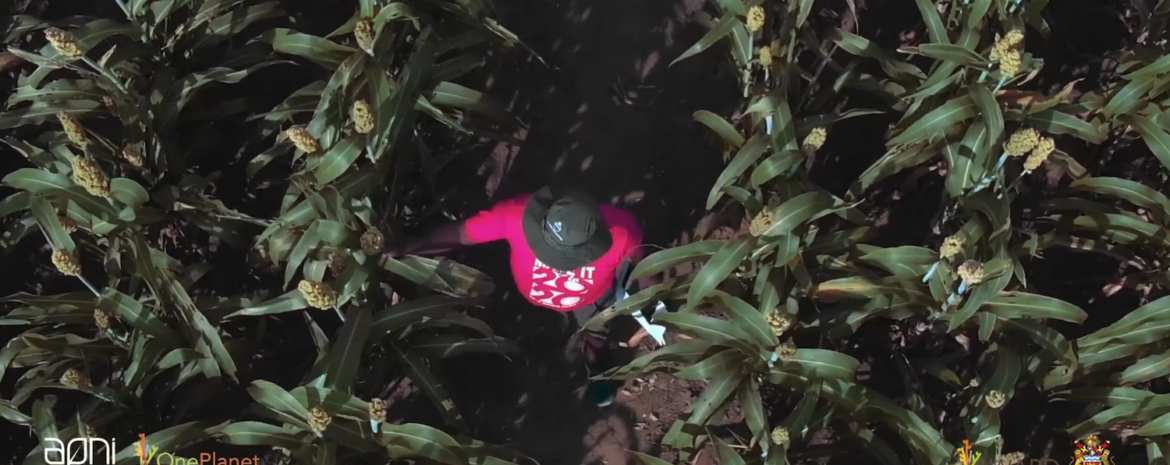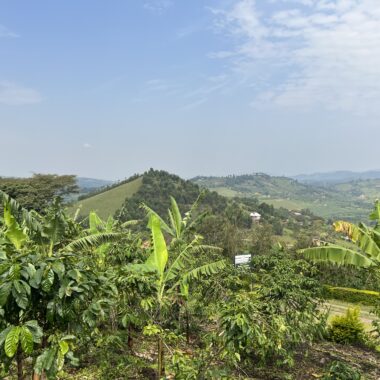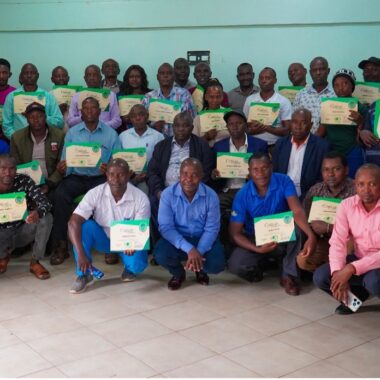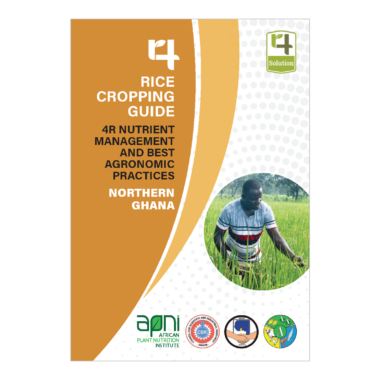Climate Change Adaptation through Improved Sorghum Productivity in Malawi
Farmers in Malawi will tell you from experience that their climates have changed. More frequent periods of intense drought and heat have become more commonplace, and this change is challenging the viability of traditional practices for staple food crop production in the region.
Dr. Austin Phiri, Chief Agricultural Research Scientist at Bvumbwe Agricultural Research Station in Malawi, is addressing this problem through an extensive field study being conducted throughout the country.
His pan-Malawi study uses a “mother and baby” trial approach that has to date involved 25 host farmers in Mikalango Extension Planning Area (EPA) in Chikwawa (2 mother trials and 23 baby trials); 23 farmers in Lunzu EPA in Blantyre (2 mother trials and 19 baby trials); and 21 farmers in Chinguluwe EPA in Salima (2 mother trials and 19 baby trials). On-station trials were also established at Government Agricultural Research Stations in Kasinthula in Chikwawa, Bvumbwe in Thyolo, and Chitala in Salima.
Dr. Phiri’s group is using the network of trials as a demonstration platform to encourage adoption of the ideas that evolve from the work by neighboring smallholders.
Study’s Approach Attracts Young African Phosphorus Fellowship
Dr. Phiri’s approach starts with an innovative cropping system that involves intercropped pigeon pea and cowpea rotated with sorghum—a primary food grain crop that is proving to be productive under the droughty conditions that are being experienced. Growing and incorporating the biomass of these nitrogen (N)-fixing legumes provides a host of soil health and nutrient cycling benefits, especially to the succeeding sorghum crop. Dr. Phiri also wishes to learn how best to manage the rates, of other nutrient sources (i.e., fertilizers/composts/animal manure) within this intercropping system as a whole and in sorghum mono-cropping.
Dr. Phiri’s approach attracted the attention of the Young African Phosphorus Fellowship, which he received in 2020 in support of the study.
Feature Videos: Watch these videos to learn more about how Dr. Austin Phiri’s study is improving sorghum for smallholders in Malawi.
Short Video Excerpt (~4 min)
Full Video (~34 min)
The overall goal is optimizing the sustainability for staple food-grain production through the creation of more resilient cropping/farming systems for Malawi’s smallholder farmers to adopt. Baseline composite soil samples in all mother trial fields and selected baby trial fields are being collected to establish important benchmark soil fertility information for Malawi.
“We wish to optimize phosphorus (P) and N use efficiency and yield of sorghum in rotation with the legumes as influenced by the incorporation of pigeon pea and cowpea biomass into the soil,” explains Dr. Phiri. “This trial will provide a base understanding on how P and N is best managed within this system.”
Dr. Phiri has also included a socio-economic analysis through baseline survey tools used to connect farm profile data on resource availability, surrounding biophysical traits, and gender status to soil fertility management and sorghum production.
Contributors: Gavin Sulewski, APNI Editor; Dr. Austin Phiri, Chief Agricultural Research Scientist, Bvumbwe Agricultural Research Station, Thyolo, Malawi.





